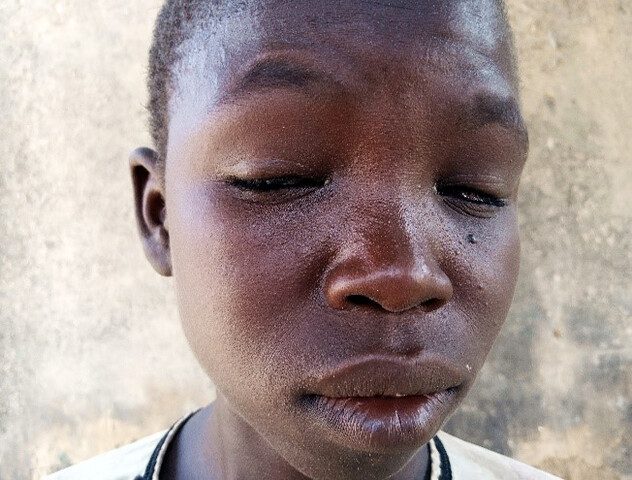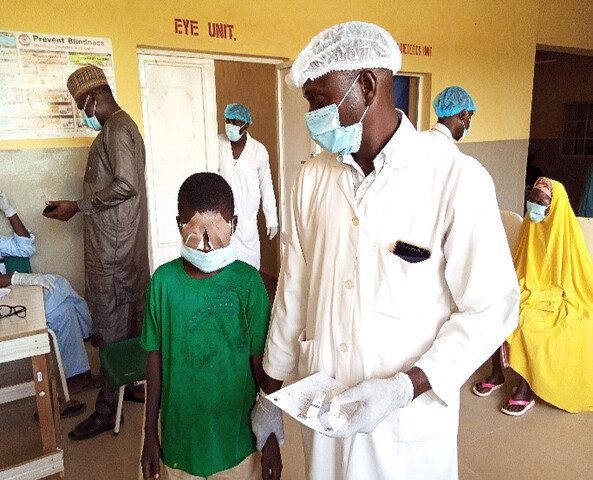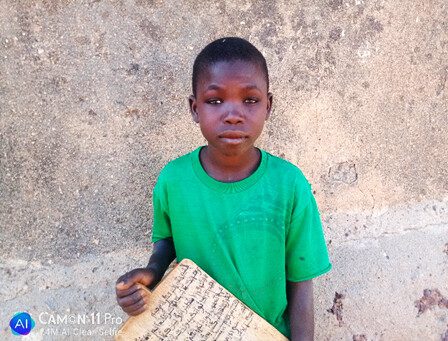The courage to imagine a life unencumbered by the burden of trachoma
For most of his life, Ibrahim had a hard time imagining his future. Unknown to him, Ibrahim was experiencing severe trachomatous trichiasis, the long-term consequence of repeated trachoma infections, which causes the eyelashes to turn inward, brushing the eyeball. A young teenager focused on his education, Ibrahim was accustomed to finding workarounds for reduced vision, or navigating the pain in his eyes. But after almost 10 years, his pain was so severe that he could barely lift his head — let alone complete his schoolwork, see the chalkboard, or socialize freely with his friends and mentors. His relatives and teachers knew of no cure for his chronic condition. How was he to learn, find a job, or make friends?

Luckily, Helen Keller Intl works in Nigeria sending trained volunteers and health workers door-to-door to help identify and refer individuals suffering from trachomatous trichiasis and connect them with the right care. Case finder Halimatu Hamzah visited the Islamiyya (Quranic boarding school) where Ibrahim attends school in Musawa.
Building trust to provide healthcare to children that need it most
Mrs. Hamzah is one of many health workers trained by Helen Keller Intl to identify trachomatous trichiasis and connect those experiencing it with proper help. Mrs. Hamzah and her peers are mostly, and deliberately, female. Women’s roles as mothers, caregivers and community leaders engender trust among those perhaps reluctant to accept help or permit screenings, and overall, women’s participation in these public health campaigns has increased access to and awareness of critical services.
When Mrs. Hamzah encountered Ibrahim, his condition had progressed so greatly that she found it difficult to even conduct a screening, reporting that due to pain, he was unable to lift his head and show her his eyes. She referred Ibrahim for surgery, which he received from Nabila Mohammed, who has been performing surgeries since she was trained by Helen Keller in 2014. Ibrahim benefitted from involved surgical aftercare in the weeks that followed and in mere weeks was fully healed — with his full sight restored.

Ibrahim’s first move after recovering from surgery? Resume his education and re-engage with his peers. After 10 years of life with trachomatous trichiasis, Ibrahim is now free to imagine a different life and new potential — unencumbered by the burden of trachoma.




